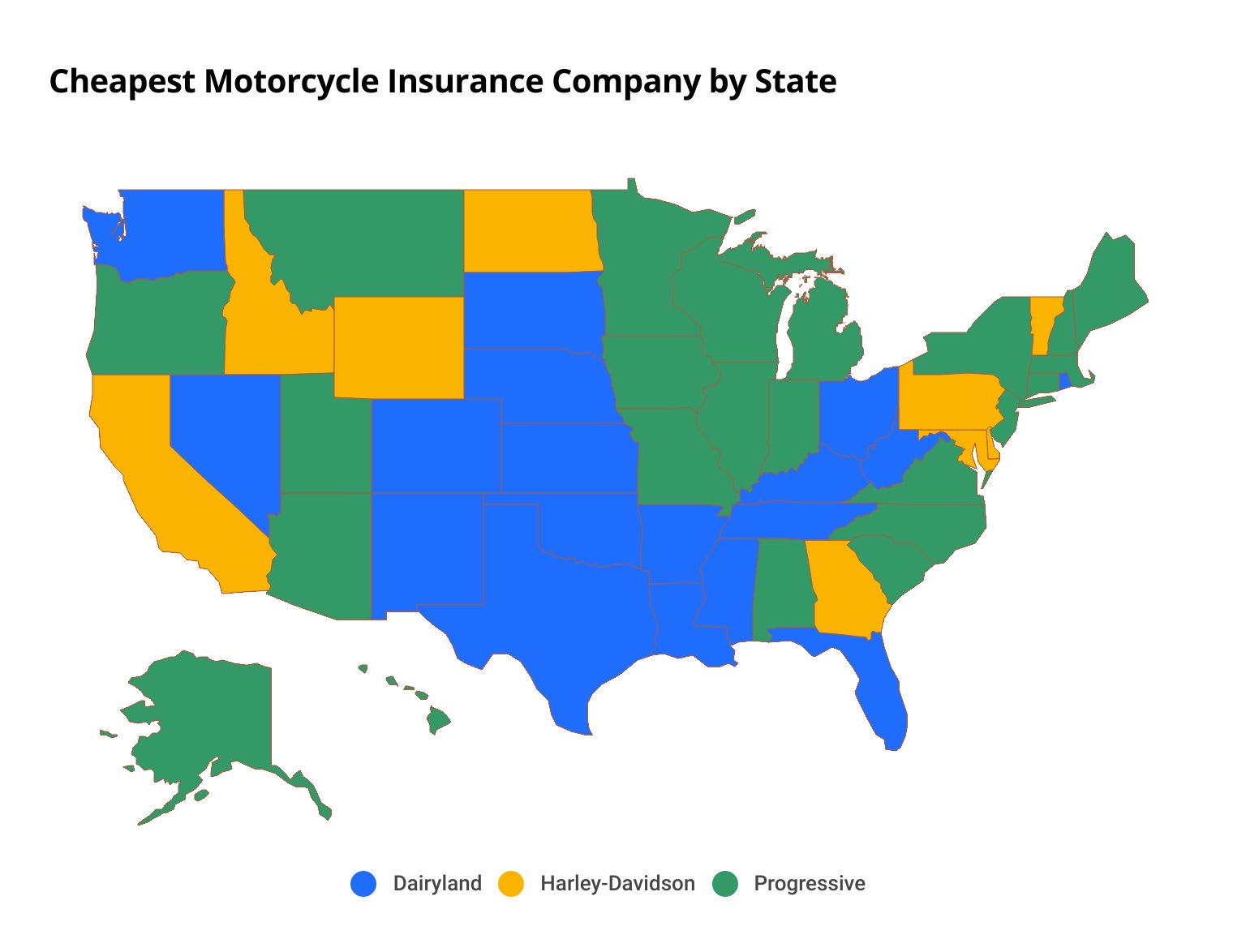Prescription Insurance: Plan Options & Ways to Save on Drugs
Most people get prescription insurance through their regular health insurance plan. Prescription discount cards are common ways to get... Read More
Find Cheap Motorcycle Insurance Quotes in Your Area

Understand how motorcycle insurance can protect you and your ride.
Collision coverage
Collision coverage pays for damage to your bike if you hit another vehicle or object.
Comprehensive coverage
Comprehensive coverage pays to fix or replace your bike after vandalism, theft or damage by an "act of God," like hail.
Bodily injury liability
Bodily injury protection pays for the medical bills of other drivers and passengers if you cause an accident.
Property damage liability
Property damage liability covers any damage you cause to someone else's vehicle or property.
Find the best motorcycle insurance in your state.

The average cost of motorcycle insurance is $33 per month, or $399 per year, for full coverage. Three main factors affect rates: where you live, the amount of coverage you need and your riding history.
The cheapest motorcycle insurance companies are typically Dairyland, Progressive and Harley-Davidson.
However, rates vary by state. So the cheapest company near you could differ from the best option nationally. That's why comparing quotes from multiple companies is important when shopping for motorcycle insurance.
No single motorcycle insurance company is best for every rider. Major companies like Progressive and Geico offer standard motorcycle insurance, with discounts for bundling your auto and homeowners insurance. On the other hand, specialty companies like Dairyland and Harley-Davidson provide more extensive coverage to dedicated riders.
The best way to find cheap motorcycle insurance is by comparing quotes from multiple companies. You should also look for discounts. Many companies offer savings for bundling your motorcycle and auto insurance, making automatic payments or taking a motorcycle safety course.
You can get the cheapest motorcycle insurance rates by buying the minimum coverage required in your state. Most states only require a small amount of liability coverage for bodily injury and property damage. However, you won't have any coverage for your bike if you cause a crash. This may not be the best choice if you can't afford to replace your bike after an accident.
Every state has its own laws, but it's generally harder to insure your bike if you don't have a valid motorcycle license or endorsement. Most insurance companies require your license info. Companies that don't may treat you as a riskier customer and charge you more for coverage.
Most people get prescription insurance through their regular health insurance plan. Prescription discount cards are common ways to get... Read More
Among those experiencing stress, money is the No. 1 factor. Here’s what else we... Read More
Anecdotal evidence suggests the popular weight loss drug can boost fertility, but doctors warn against unknown side... Read More
The cost of the drug can be prohibitive, complicated by consumers’ desire for a fast weight-loss... Read More
A Medicare Benefit Period determines your costs and coverage for hospital care. Your coverage resets at the end of the benefit period, when... Read More
Getting your tubes tied usually costs up to $6,000 before insurance. The total cost for surgery is usually higher, but health insurance... Read More
Gold plans are a more expensive level of health insurance that usually pays for about 80% of your medical bills. It's the second-highest... Read More
With inflation and increased natural disasters pushing up the cost of homeowner’s insurance, many are at risk of finding themselves... Read More
The cost to insure and operate a 2023 Tesla Model Y Long Range is more expensive on average, but average driving expenses are higher for a... Read More
To find the average cost of motorcycle insurance and the cheapest companies, ValuePenguin collected quotes across all 50 states in the U.S. Rates are for a 45-year-old single man who owns a 2018 Honda CMX500 Rebel.
Quotes are for a full coverage policy, which includes higher liability limits than state requirements along with comprehensive and collision coverage.